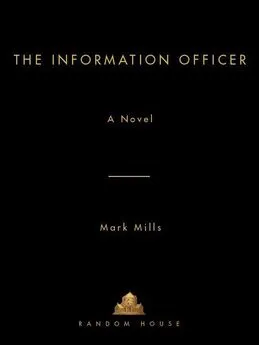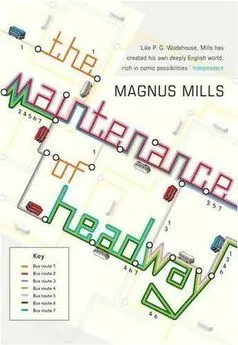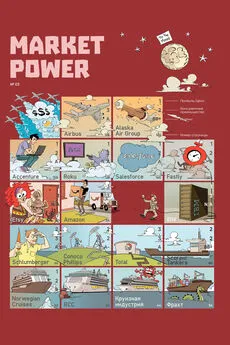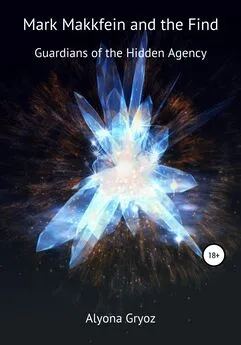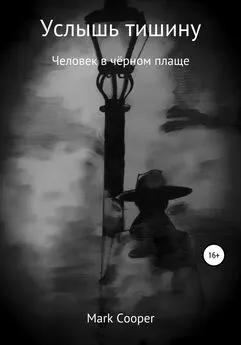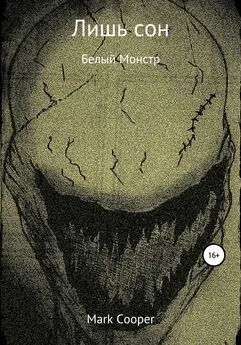Mark Mills - Amagansett
- Название:Amagansett
- Автор:
- Жанр:
- Издательство:неизвестно
- Год:неизвестен
- ISBN:нет данных
- Рейтинг:
- Избранное:Добавить в избранное
-
Отзывы:
-
Ваша оценка:
Mark Mills - Amagansett краткое содержание
Amagansett - читать онлайн бесплатно ознакомительный отрывок
Интервал:
Закладка:
Hollis removed two documents from his pocket and laid them in front of George Wallace. ‘A personal-effects form, to say you’ve received them.’ George Wallace took the pen offered him and signed both copies. Hollis replaced one in his pocket.
‘There’ll be another form to sign for the effects found with her.’ He threw in a brief pause. ‘Her swimsuit…and her earrings.’ Mention of the earrings triggered no reaction.
‘Do you know what happened exactly?’ asked Manfred.
‘It’s hard to say. There were no witnesses that we know of. I’m sure you’re aware, the currents can be pretty dangerous. The autopsy confirms that she drowned.’
Manfred straightened in his seat. ‘The autopsy?’
‘Yes.’
‘You mean you cut her up!?’
Hollis took a moment to formulate his response. ‘An internal examination was conducted by the Medical Examiner. The law calls for it in all cases of unattended deaths.’
‘Unattended deaths’: what was he thinking, reducing the tragic loss of their loved one to a piece of police-manual jargon?
‘Jesus Christ,’ said Manfred, ‘they cut her up!’
‘Manfred…’
‘Don’t you at least have to ask for our consent or something!?’
‘Manfred.’ This time, George Wallace raised his voice.
‘They should have asked for our consent.’
‘It’s not required,’ said Hollis.
George Wallace turned to him. ‘All the same, it would have been good to know.’
Hollis had to concede the point. It was an oversight on his part, and one he wouldn’t have committed if he hadn’t been so caught up in his own private speculations. ‘You’re right,’ he said. ‘I apologize.’
‘What exactly did you do to her?’ Manfred’s tone remained accusatory.
‘Manfred, the gentleman has apologized,’ said George Wallace firmly. ‘He has explained the situation and he has apologized.’
Thankfully, at that moment the receptionist reappeared with the glasses of water. ‘The Medical Examiner will see you now, if you’d like to come with me.’
Manfred stared forlornly at the glass in front of him. Without touching it, he got to his feet and followed his father.
Gayle lingered a moment longer, sipping from her glass. ‘I’m sorry,’ she said. ‘They were very close.’
As she left, Hollis called after her. ‘Miss Wallace.’ She turned back. ‘Try Yardley’s Funeral Home. They’re on Newtown Lane.’
‘Yardley’s. Thank you.’
And she was gone.
Eight
Oyster shells crunched beneath the tires as Conrad turned into the parking lot. The lone headlight swept over the other vehicles already gathered there before settling on a space in the shadows, beyond the pool of light thrown by the lamp above the door of the ramshackle oyster house.
Conrad stepped from the vehicle. It was a still, warm evening, humid and close, the breeze too light to cool the skin. He could hear the hum of raised voices from inside the hall, then a barked reprimand calling everyone to order.
He shouldn’t have come, but what else was he going to do, sit at home with his swirling thoughts? He needed distraction and this was as good as anything on offer. He pulled the tobacco pouch from his pocket, laid it on the hood of the Model A and started to roll a cigarette.
The moon cast an inviting trail across the grand sweep of Gardiner’s Bay, connecting the steep bluffs south of Accabonac Creek to Promised Land where Conrad now stood. This was the northern limit of Napeague, the narrow thread of land that connected the high ground of Amagansett to that of Montauk.
Not even half a mile to the south lay Conrad’s house and the battered Atlantic coast. Here on the lee shore it was an altogether different world, a place of calm and shelter where the southwesterly winds came in fits and starts, broken up by their passage across the upland, and the waters lapped lazily at the arcing sand beach.
The fishermen weren’t fooled by this. They knew from hard experience that the bayside sea could still turn on you in the beat of a heart. One winter just before the war Conrad had been helping Milt Collard run building stock out to Gardiner’s Island when the wind suddenly backed around to the northeast. With a crew of twelve workmen and a bellyful of bricks, Milt’s old cutdown schooner, the Osprey, was already slung low in the water when they set off from Three Mile Harbor, the big 671 diesel straining under the load.
Ten minutes out, the wind turned suddenly and breezed up. An angry chop soon gave way to battle-lines of whitecaps, four feet high, which advanced on the Osprey, slapping into her with remorseless regularity. In no time at all these had grown to six feet. Ice cakes left over from the big freeze began surfing down the face of the waves and shattering against the schooner’s bow.
By now they were pumping and bailing by hand, a bucket brigade of men fighting to keep the vessel afloat. Milt stood in the small pilothouse in the stern, fighting the wheel, water flooding knee-high around him each time the Osprey slumped into a trough.
‘Ditch the cargo!’ he screamed. ‘Goddamnit, ditch the goddamn cargo!’
You never saw a bunch of men move so fast. Instead of water, they now started heaving bricks over the side, no formal chain this time, half of the crew scrabbling in the hold, the others ducking the hail of bricks; the blind panic of men looking death squarely in the eye. There were no life jackets on board, not that they’d have done you any good in water that cold. No, if the Osprey went down, you’d have been better off grabbing an anchor and getting it over with.
It was a close call, but they had made the shelter of Gardiner’s Island, riding out the vicious squall. The wind dropped abruptly and Milt swung the Osprey around, heading back to Three Mile Harbor. Not one word had been shared by the ashen-faced crew since Milt first barked his order at them.
‘You lazy sonsabitches,’ he now said. ‘Two hours to load, two minutes to offload. Now I know you been leadin’ me a dance.’
A handful of men, Conrad among them, erupted in fear-tinged laughter. They quickly figured from the look in the eyes of those who knew Milt a whole lot better that any humor in the remark was entirely of their own imagining.
Milt later admitted that he’d never seen anything quite like it out on Gardiner’s Bay, and this from a man who’d skippered bunker boats out of Promised Land for more than twenty years. Fair weather or foul, the long steamers would put out from the dock in search of the spiny little menhaden fish—bunkers, as they were known locally—that clogged the waters off the South Fork during the warmer months. The Smith Meal Company had a dock and a clutter of hangars where endless tons of the fish were processed. Hauled from the depths in giant purse-seine nets, they were boiled to extract their oil, the remaining pulp scooped from the vats, dried and ground down into fish meal. It was a gutwrenchingly malodorous process, one that had given Promised Land its name, for the place stank to high heaven—a smell so pungent it tarnished the silver coins in the pockets of the workers.
When the plant was in production, the tall smokestacks belching clouds of fetid steam, the residents of Amagansett lived in dread of an easterly breeze. The stench would descend on the village like a curse, clawing at your nose and throat, clogging your pores. Even during the winter months, when the vats lay cold and still, there was no escaping the smell out at Promised Land. Over the years it had permeated the wooden cladding of the factory buildings and the shanties thrown up for the hordes of itinerant laborers, it had seeped into the pale sand, and it seemed to drip from the branches of the pitch pines.
The fish-meal plant sprawled on the edge of Gardiner’s Bay like a rancid dishrag beside a sink, and yet its presence there had safeguarded the area. For who in their right mind would want to build in the shadow of such a foul-smelling beast? The low dunes behind the curving beach were unencumbered by houses. More importantly, the fragile hinterland of Napeague had been spared the usual depredations of development. Its deerfeed flats, pine copses and dune hills were still laced with freshwater bogs that rang with the sound of peeper frogs in early summer. Cranberry, blueberry and sundews were in abundance, along with curly-grass ferns, staghorn lichens, Hudsonia, tiny orchids and strange edible fungi highly prized by those of Italian and French descent, who’d been known to come to blows during the short picking season.
Napeague meant ‘Water Land’ in the language of the Montauketts, and the area was a living testament to the happy coexistence of both elements. The relationship, tentatively forged over the centuries, recalled an era when Napeague had been open water separating the hills of Montauk from the main body of Long Island.
Some disputed this notion, but Conrad was convinced of it. How else to account for the skeletal remains of the whale he had discovered while out roaming one spring morning? The bleached vertebrae, each as big as a water pail, lay part-buried beneath a tangle of bearberry bushes a quarter of a mile inland at a spot where Napeague was half a mile wide. The only explanation was that the creature had been cast up on a shallow bar linking the two land masses, and that over the many years this slender umbilicus had grown inexorably through a process of accretion, sand layered upon sand, scoured from the ocean bluffs of Montauk and deposited by the ocean.
Conrad was an eleven-year-old boy when he first stumbled across the bones, and to his wildly imaginative mind the find was proof that the great Flood as described in the Book of Genesis had indeed occurred. The whale must surely have found itself stranded high and dry when the waters that God sent to punish the wicked finally receded. As far as Conrad was concerned, discovering those bones was the next best thing to finding the Ark itself atop Mount Ararat.
The possessiveness of the young led him to guard his secret closely. He persuaded himself there was no need to share the discovery, not even with his closest friend—Billy Ockham—who would have been with him that day had he not been forced to trim hickory spiles for his father’s pound traps. Instead, Conrad carefully covered the exposed bones with sand, returning home with just the one vertebra, informing his father and stepmother that he’d found it on the ocean beach.
He had rejected the idea of hiding the precious object, partly because he needed his father’s expert confirmation that it had indeed come from a whale, but mainly because his older brother, Antton, would most likely have discovered the bone then destroyed it—ceremoniously, before his tear-filled eyes—for no other reason than that concealment was proof of Conrad’s affection for it.
For years the vertebra lay casually discarded in a corner of the attic bedroom the brothers shared, Conrad feigning indifference to it. However, when he was alone he’d pick it up, turning it in his hands, tracing its soft, porous contours with his fingertips.
Even when his faith abandoned him some years later, the bone lost none of its iconic power. Twenty years on, he still kept it in his bedroom. It was the last thing he registered before fitful sleep descended upon him, and the first thing his eyes searched out when he woke each morning. It had become the touchstone by which he tested his life. Somehow, it seemed to enshrine everything that had happened to him since he first prized it from the packed sand.
When he looked at it he saw himself romping with Billy on Napeague, grubbing for cherrystone clams that they cooked up on a steel plate over a fire-pit on the beach, digging holes and hauling up fresh water in a nail keg to see themselves through the long hot days of summer, or sneaking out at night to watch the Coast Guard cutters chasing the rum runners all over Gardiner’s Bay, tracer bullets and the muzzle flashes from the big three-inch guns lighting up the night sky, better than the Fourth of July. Other times, he saw Billy torn apart by machine-gun fire, clods of flesh flying, on some nameless rock in the Pacific, thousands of miles from home, fighting for a people who had sought, with considerable success, to annihilate him and his kind.
Читать дальшеИнтервал:
Закладка:

